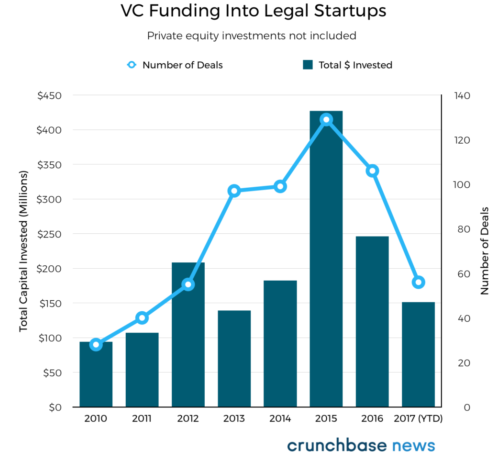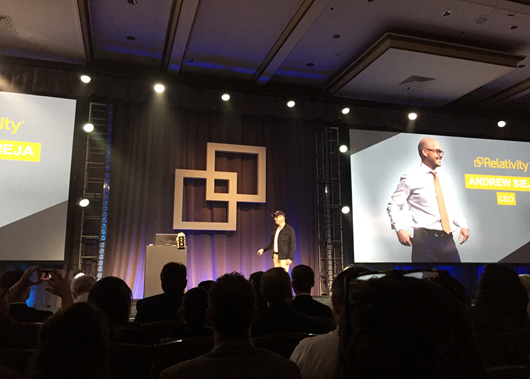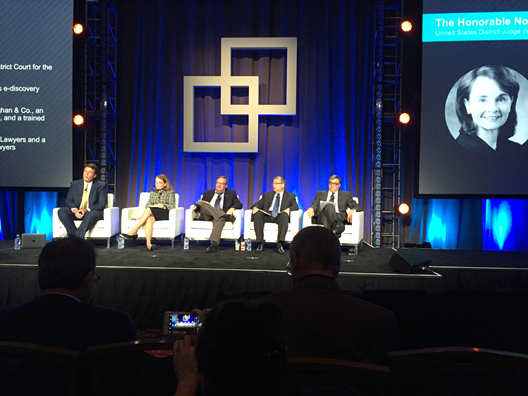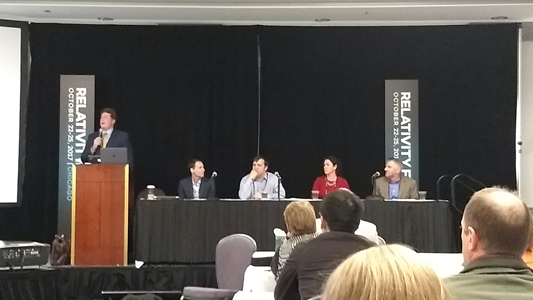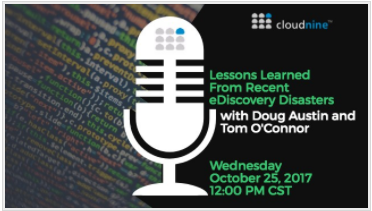In GN Netcom, Inc. v. Plantronics, Inc., No. 12-1318-LPS (D. Delaware, Oct. 5, 2017), Delaware District Judge Leonard P. Stark chose to determine the preliminary and final jury instructions he would give with respect to the defendant’s spoliation for the “intentional and admitted deletion of emails” ruled on earlier, as well as the “Stipulated Facts” he would read to the jury at or near the start of the trial, rather than respond to the four spoliation-related questions posed by the plaintiff or defendant.
In this case with claims of monopolization, attempted monopolization and common-law tortious interference with business relations against the defendant, the defendant received “punitive sanctions in the amount of $3,000,000” for the “intentional and admitted deletion of emails” by the defendant’s Senior Vice President of Sales. After reviewing the parties’ joint status report, as well as other materials submitted throughout the case, and having discussed the issues with the parties on multiple occasions, including during the pretrial conference, Judge Stark chose to determine the preliminary and final jury instructions he would give, as well as the “Stipulated Facts” he would read to the jury at or near the start of the trial.
Judge Stark identified this language as the “preliminary instruction {that} will be provided to the jury”:
“SPOLIATION
The law requires that parties preserve relevant documents, including emails, when litigation is pending or contemplated. This is because, when one party sues another, each side has the right under the law to inspect or obtain production of internal documents and other evidence from the other party.
The destruction or material alteration of evidence or the failure to preserve documents or emails for another party’s use as evidence in pending or reasonably foreseeable litigation is referred to as “spoliation.”
In this case, it has been determined that Plantronics committed spoliation.
It has also been determined that Plantronics’ spoliation was not accidental and that evidence relevant to this case may have been destroyed by Plantronics. As such, during this trial, you may hear questions and answers from the parties referencing missing or destroyed emails and Plantronics’ spoliation of evidence. While the exact contents of the spoliated evidence are unknown, you, the jury, will be permitted – but not required – to infer that the lost documents were relevant and favorable to GN’s case and/or harmful to Plantronics’ case.
*3 You will learn during trial that Don Houston, a former employee at Plantronics, failed to preserve certain emails after his duty to preserve them arose. You will also hear that efforts were made to recover the emails that Mr. Houston failed to preserve and that additional emails were produced to GN through these recovery efforts.
I will have further instructions on these matters for you at the conclusion of the trial.”
Judge Stark identified this language as the “final instruction {that} will be provided to the jury”:
“SPOLIATION
I instruct you that Plantronics failed to preserve evidence after its duty to preserve arose. This failure to preserve is known as ‘spoliation of evidence.’ In other words, spoliation is the destruction or material alteration of evidence or the failure to preserve evidence for another’s use in pending or reasonably foreseeable litigation.
Based on Plantronics’ spoliation, you may, but are not required, to presume that the lost evidence would have been relevant and helpful to GN’s case and/or would have been harmful to Plantronics’ case. Alternatively, you may infer that the evidence not produced would merely have been duplicative of, or similar to, the evidence before you.
In other words, your role is to determine whether Plantronics’ spoliation tilted the playing field against GN. If so, the permission given to you by the Court to infer that the missing documents would have been relevant and helpful to GN and/or harmful to Plantronics is designed to allow you to balance that playing field, should you feel it is necessary.
It is up to you to decide the extent to which the lost evidence was relevant and helpful to GN and/or harmful to Plantronics. Of course, it is impossible to know exactly what evidence was lost – although the parties have tried – so you must make these determinations to the best of your ability based on all of the facts and circumstances of this case. You must then decide how much weight and effect to give to your belief about spoliation in reaching your verdict.”
Judge Stark also identified the 16 stipulations that he would read. Four of those stipulations would only be read “if, no later than Saturday, October 7 at 3:00 p.m., Plantronics submits an affidavit providing the evidentiary basis for the numerical figures contained in these paragraphs, all of which the Court adopted based on Plantronics’ representations.”
So, what do you think? Is a jury instruction a sufficient sanction for the “intentional and admitted” spoliation by the defendant? Please share any comments you might have or if you’d like to know more about a particular topic.
Also, I’m excited to report that eDiscovery Daily has been nominated to participate in The Expert Institute’s Best Legal Blog Contest in the Legal Tech category! Thanks to whoever nominated us! We’re fading fast, but if you enjoy our blog, you can still vote for it and help it win a spot in their Best Legal Blogs Hall of Fame. You can cast a vote for the blog here. Thanks!
Case opinion link courtesy of eDiscovery Assistant.

Disclaimer: The views represented herein are exclusively the views of the author, and do not necessarily represent the views held by CloudNine. eDiscovery Daily is made available by CloudNine solely for educational purposes to provide general information about general eDiscovery principles and not to provide specific legal advice applicable to any particular circumstance. eDiscovery Daily should not be used as a substitute for competent legal advice from a lawyer you have retained and who has agreed to represent you.




